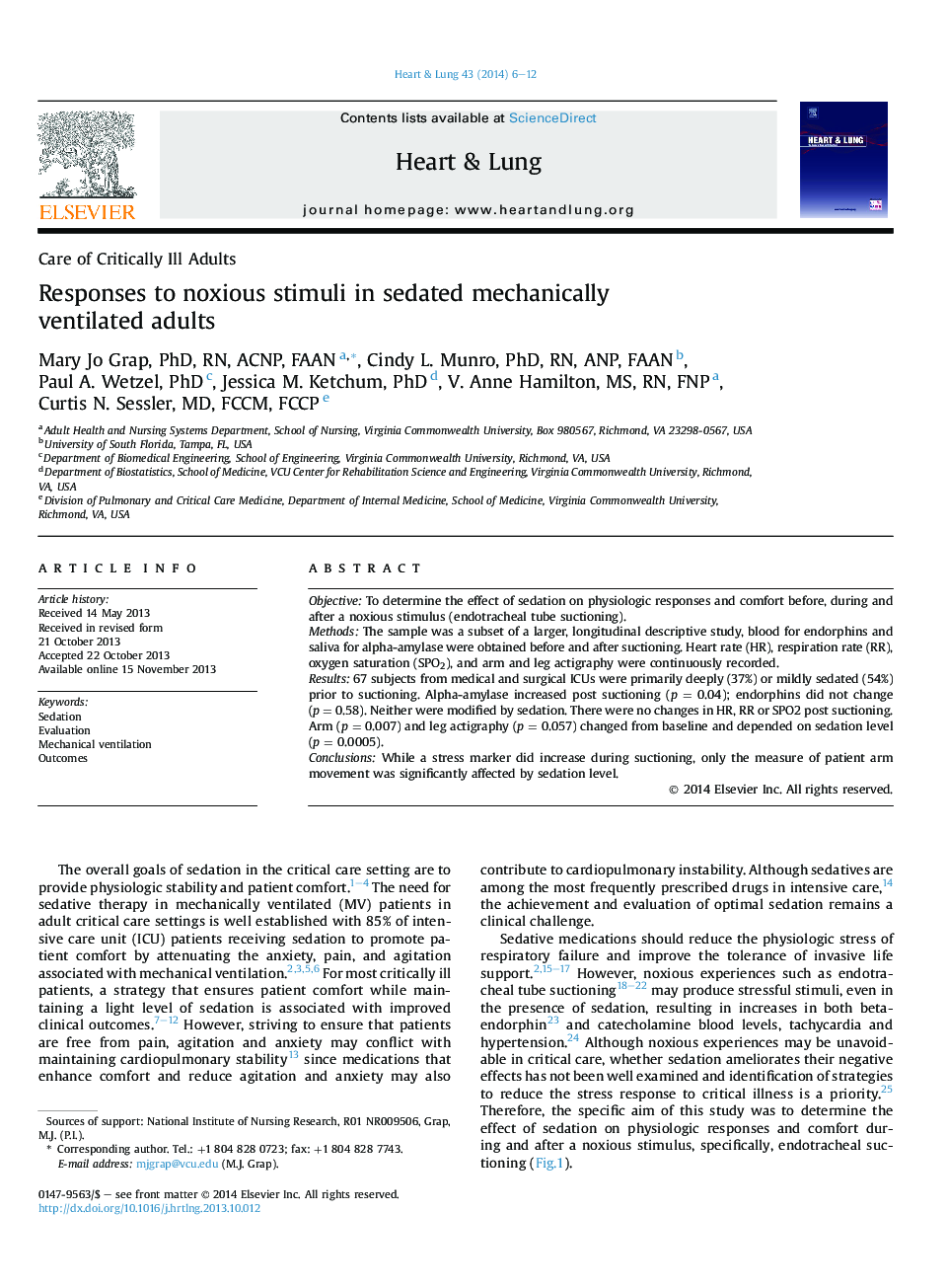| Article ID | Journal | Published Year | Pages | File Type |
|---|---|---|---|---|
| 2651809 | Heart & Lung: The Journal of Acute and Critical Care | 2014 | 7 Pages |
ObjectiveTo determine the effect of sedation on physiologic responses and comfort before, during and after a noxious stimulus (endotracheal tube suctioning).MethodsThe sample was a subset of a larger, longitudinal descriptive study, blood for endorphins and saliva for alpha-amylase were obtained before and after suctioning. Heart rate (HR), respiration rate (RR), oxygen saturation (SPO2), and arm and leg actigraphy were continuously recorded.Results67 subjects from medical and surgical ICUs were primarily deeply (37%) or mildly sedated (54%) prior to suctioning. Alpha-amylase increased post suctioning (p = 0.04); endorphins did not change (p = 0.58). Neither were modified by sedation. There were no changes in HR, RR or SPO2 post suctioning. Arm (p = 0.007) and leg actigraphy (p = 0.057) changed from baseline and depended on sedation level (p = 0.0005).ConclusionsWhile a stress marker did increase during suctioning, only the measure of patient arm movement was significantly affected by sedation level.
